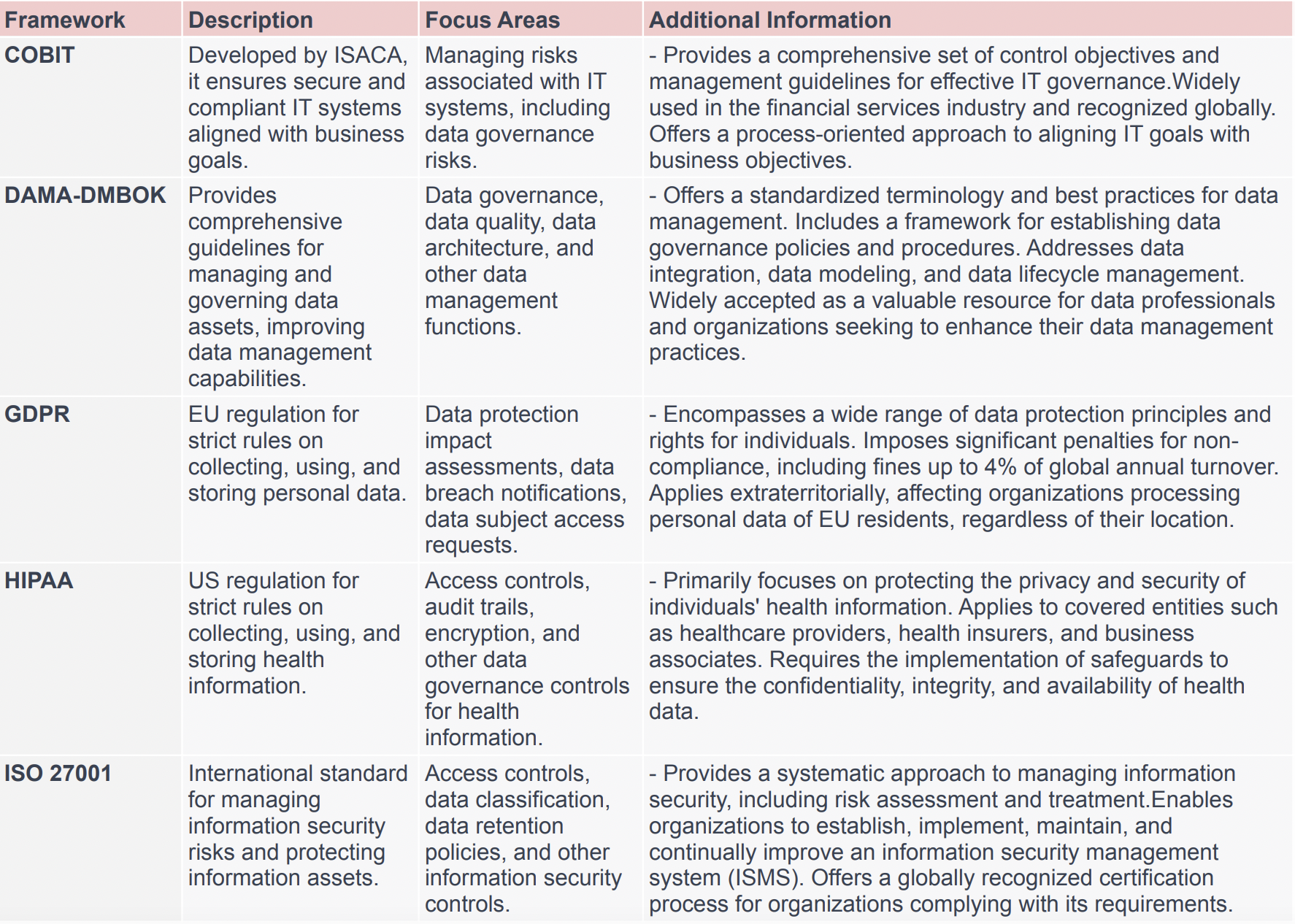In today's data-driven world, organizations face the immense challenge of effectively managing their data, mitigating risks, and ensuring compliance with regulatory requirements. This necessitates the adoption of robust data governance frameworks that provide a systematic approach to defining, managing, and securing data assets.
In this blog, we will explore the significance of data governance frameworks and delve into some of the widely used frameworks such as COBIT, DAMA-DMBOK, GDPR, HIPAA, and ISO 27001. We will also discuss the challenges involved in implementing capacitated teams on these frameworks and conclude with key insights on the importance of a skilled and knowledgeable team in achieving data governance excellence.
The following chart presents a comparison of the top 5 data governance frameworks that are crucial for organizations aiming to effectively manage their data, mitigate risks, and achieve regulatory compliance.

Challenges of Implementing Capacitated Teams on Frameworks:
While data governance frameworks provide a structured approach to managing data and ensuring regulatory compliance, their successful implementation can be a daunting task. Organizations often encounter several challenges when establishing capacitated teams to effectively operate within these frameworks.
One of the primary hurdles lies in the complexity of these frameworks, requiring substantial time, effort, and resources to implement. Continuous improvement is vital, necessitating a commitment to ongoing training and development. Furthermore, effective implementation necessitates cross-functional collaboration and communication skills, as well as strict adherence to relevant regulations and standards. Despite these challenges, organizations that aspire to thrive in today's intricate business landscape understand the criticality of establishing a capacitated team equipped with the necessary skills and knowledge.
Conclusion:
Data governance frameworks are vital for organizations seeking efficient data management, risk mitigation, and regulatory compliance. Adopting frameworks like COBIT, DAMA-DMBOK, GDPR, HIPAA, and ISO 27001 ensures well-governed, secure, and compliant data assets. Overcoming implementation challenges requires a culture of continuous learning, cross-functional collaboration, and regulatory adherence. Prioritizing skilled and knowledgeable teams is crucial in navigating data governance complexities and achieving success in a data-centric landscape.
Reach out to us today to discuss how we can elevate your organization's data governance capabilities to new heights. Click here to book a meeting and embark on this transformative journey together.